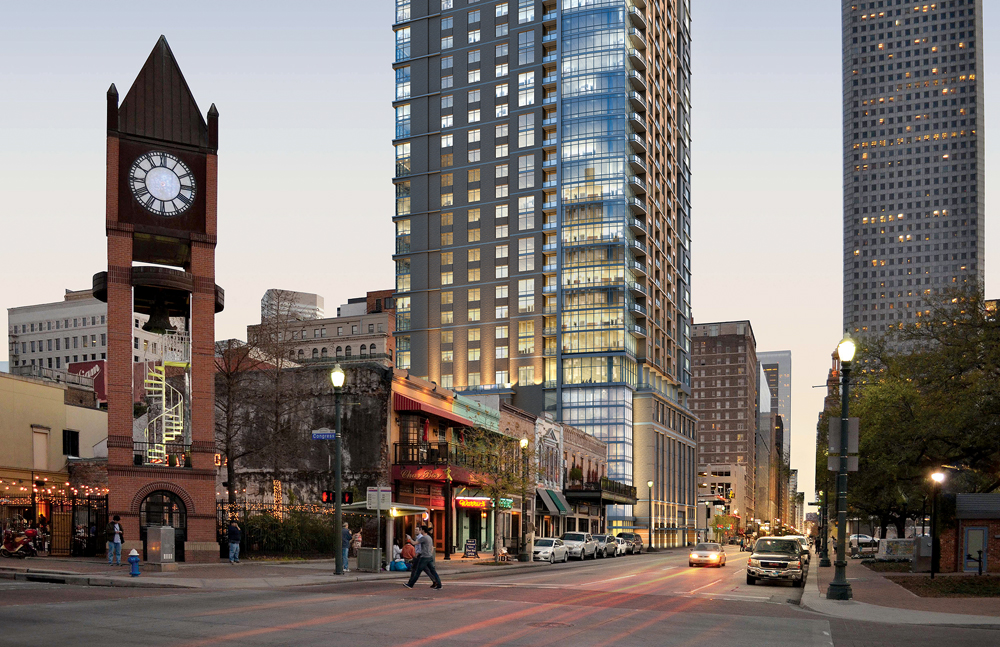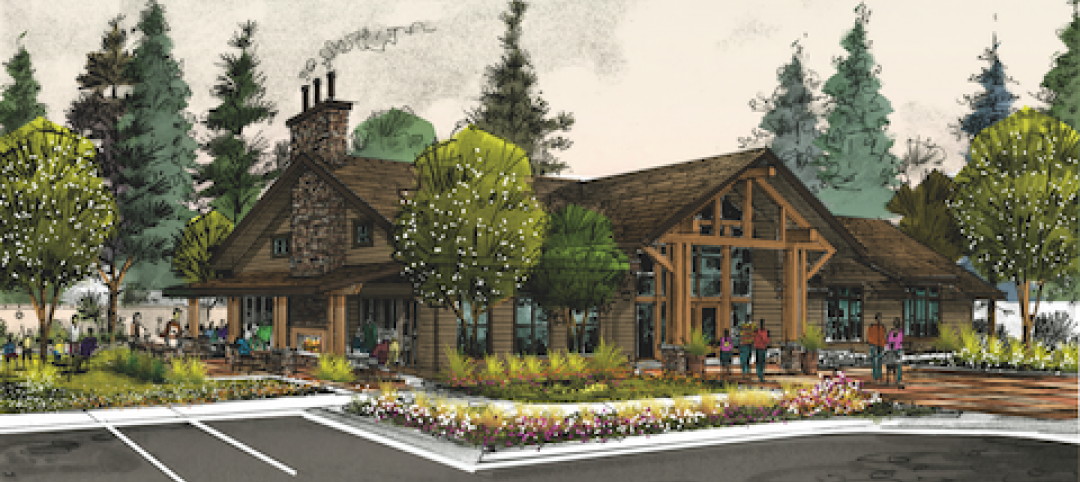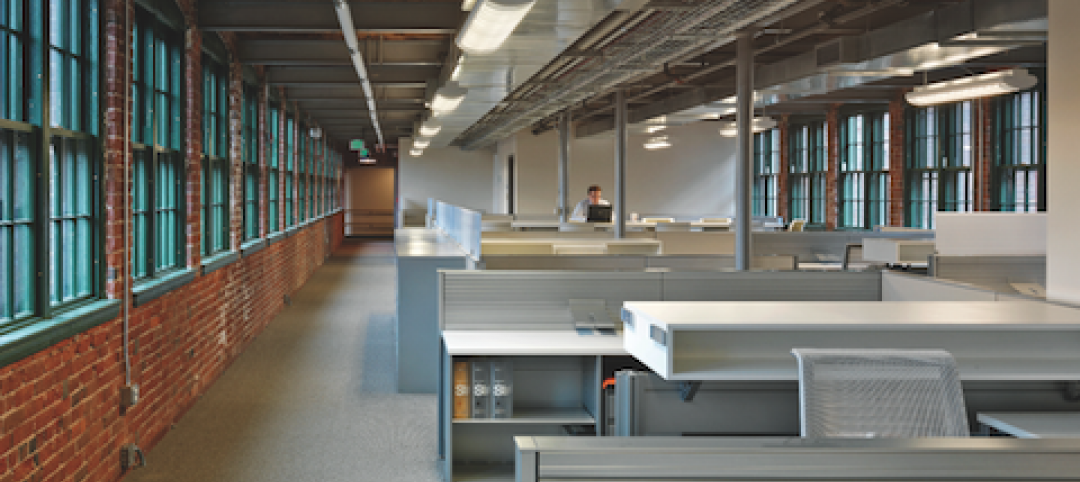The conventional wisdom about renters is that most of them would prefer to own their homes, and that many eventually will buy a house.
However, a survey of more than 25,000 adults—about one-third renters, two-thirds homeowners—found the renters to be more burdened by debt than homeowners and severely short of emergency savings. For many renters, a 20% down payment to secure a mortgage is a pipe dream; for some, even the government’s recent plan to bring back mortgages with 3% down payments might be a bridge too far.
The Financial Industry Regulatory Authority (FINRA), a nonprofit oversight organization authorized by Congress, conducted the study in 2012, and released its results last October.
For more on the multifamily housing sector, read BD+C's Special Report: "5 intriguing trends to track in the multifamily housing game"
In 2012, 36% of Americans were renters. The survey found them to be younger than homeowners; only 39% were married, compared to 63% of owners. Nearly three-fourths of renters (74%) had household incomes below $50,000, compared with 41% of owners.
The survey found renters to be less educated, and nearly twice as likely to be unemployed or temporarily laid off, than owners. Forty-two percent of renters are minorities, compared with 29% of owners.
About one in four renters (24%) said they found it “very difficult” to pay their bills, versus 12% of owners. Nearly half of renters (48%) said paying their bills was “somewhat difficult,” compared to 39% of homeowners.
Renters are burdened by a surfeit of debt. The survey found that renters were nine percentage points more likely than homeowners to carry credit card debt and nine percentage points more likely to carry student debt.
The difference was even more drastic for medical debt: 17 percentage points. (At the time the survey was taken, 68% of the renters said they had medical coverage, versus 85% of homeowners, but this was before the Affordable Care Act took effect.)
The scariest finding was that renters had practically no savings and live from paycheck to paycheck. Fifty-eight percent said they probably or definitely couldn’t come up with $2,000 in 30 days to cover an unexpected expense, compared to 29% of homeowners. Only 22% of renters (versus 50% of owners) said they had enough savings to cover three months’ expenses.
Related Stories
| Oct 13, 2010
Apartment complex will offer affordable green housing
Urban Housing Communities, KTGY Group, and the City of Big Bear Lake (Calif.) Improvement Agency are collaborating on The Crossings at Big Bear Lake, the first apartment complex in the city to offer residents affordable, eco-friendly homes. KTGY designed 28 two-bedroom, two-story townhomes and 14 three-bedroom, single-story flats, averaging 1,100 sf each.
| Oct 13, 2010
Residences bring students, faculty together in the Middle East
A new residence complex is in design for United Arab Emirates University in Al Ain, UAE, near Abu Dhabi. Plans for the 120-acre mixed-use development include 710 clustered townhomes and apartments for students and faculty and common areas for community activities.
| Oct 13, 2010
Community center under way in NYC seeks LEED Platinum
A curving, 550-foot-long glass arcade dubbed the “Wall of Light” is the standout architectural and sustainable feature of the Battery Park City Community Center, a 60,000-sf complex located in a two-tower residential Lower Manhattan complex. Hanrahan Meyers Architects designed the glass arcade to act as a passive energy system, bringing natural light into all interior spaces.
| Oct 12, 2010
The Watch Factory, Waltham, Mass.
27th Annual Reconstruction Awards — Gold Award. When the Boston Watch Company opened its factory in 1854 on the banks of the Charles River in Waltham, Mass., the area was far enough away from the dust, dirt, and grime of Boston to safely assemble delicate watch parts.
| Sep 13, 2010
Richmond living/learning complex targets LEED Silver
The 162,000-sf living/learning complex includes a residence hall with 122 units for 459 students with a study center on the ground level and communal and study spaces on each of the residential levels. The project is targeting LEED Silver.
| Sep 13, 2010
Committed to the Core
How a forward-looking city government, a growth-minded university, a developer with vision, and a determined Building Team are breathing life into downtown Phoenix.
| Aug 11, 2010
Brown Craig Turner opens senior living studio
Baltimore-based architecture and design firm Brown Craig Turner has significantly expanded its housing design capabilities and expertise with the launch of its new senior living studio.
| Aug 11, 2010
CTBUH changes height criteria; Burj Dubai height increases, others decrease
The Council on Tall Buildings and Urban Habitat (CTBUH)—the international body that arbitrates on tall building height and determines the title of “The World’s Tallest Building”—has announced a change to its height criteria, as a reflection of recent developments with several super-tall buildings.
| Aug 11, 2010
Morphosis builds 'floating' house for Brad Pitt's Make It Right New Orleans foundation
Morphosis Architects, under the direction of renowned architect and UCLA professor Thom Mayne, has completed the first floating house permitted in the U.S. for Brad Pitt’s Make It Right Foundation in New Orleans.The FLOAT House is a new model for flood-safe, affordable, and sustainable housing that is designed to float securely with rising water levels.













